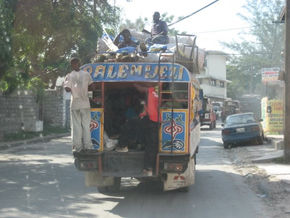Training
of Judicial Actors
Decades creating and promoting programs for the development of Human Rights in criminal proceedings across Latin America

+ than 400 Judges
and Magistrates
Exchanging and debating through practical exercises, the challenges they face daily in the implementation of Human Rights.
+ than 500 other Judicial Actors
Participating in training to take into account each of the vulnerable groups and international human rights standards in the framework of the criminal process.
7 Mexican States
covered
Collaborating and participating in the strengthening and improvement of Human Rights standards in criminal proceedings.
How is this Training
formed in Mexico ?
The main objective of this training is to be able to create a framework to discuss and develop the legal and human limits that pose barriers to the implementation of human rights standards, especially in those people who are traditionally the most affected by the justice system and your access.
The content of the programs has been designed around the practical social and legal challenges judges face in designing best practices, emphasizing international standards of interpretation of human rights. For this we have worked with local experts thus allowing local customization, as well as the full integration of the social context throughout the judicial training program for Mexican judges.
Assuring an effective implementation
of Human Rights
It is with this in mind that the University of Ottawa offered training to various judiciaries anchored both in the reality of the new criminal procedure, international human rights standards, and in the social context that is often at the center of what makes cases are difficult or contentious. International human rights standards are important guides on gender, equality and non-discrimination, ultimately as a guide to produce a more legitimate justice.
Training
Resources
Most of the teaching material was developed in collaboration with Mexican judicial actors and local experts. It consists mainly of exposing the principles through practical exercises in order to sustain a reflection and a frank discussion on the implementation of these norms and laws in the daily reality of the judge or magistrate. These are some examples of this material that we have developed during these three years.
Pillars of Work

Videos
of Human Rights education
We have also created a series of conceptual capsules to describe the processes that vulnerable groups experience in their contexts, revealing the effective applications of human rights, investigating international standards, discrimination, and fundamental guarantees in the criminal process.
The emphasis is on understanding the difference between stereotypes vs. prejudices, unconscious prejudices, the particularity of some vulnerable groups, etc. Likewise, highlighting the importance of taking into account equal treatment for all, regardless of people's living conditions, and ensuring that the law is the solid and fair pillar for all citizens.
Discrimination
Migrants
Economically vulnerable groups
Childhood and Adolescence
LGBTQ+ Sexual Minority
Victims
Experiences of learning
Partners
& Alliances

In 2015, the President of the Judicial Power of Mexico asked the University of Ottawa to train judges and magistrates of the State of Mexico to implement human rights standards; a new challenge required by the Mexican constitution.
In 2016, an extraordinary alliance began between the University of Ottawa, the State of Chiapas and Mexico. A team of 8 Mexican judges and magistrate-trainers from these two states, plus a team of experts from the University, then began to establish a curriculum and a virtual platform, which for three years worked with partners from 7 Mexican states.








.png)
Testimonials

Message of Gratitude to University of Ottawa
Antonio León - President of the Judiciary / Quintana Roo

Ismael Hernandez
President Magistrate of the Second
Court of Appeal
-Mexico -
I want to express my gratitude to the University of Ottawa and the coordination of Pierre Gilles, for the various academic and training activities that they have given to judges and magistrates of this federal entity.
My total recognition for the level of excellence and for the practical usefulness of its contents.

Maria de la Luz Quiroz
Retired Magistrate / Current General Gender Coordinator of the State Attorney General's Office
- Mexico -
I am infinitely grateful to the University of Ottawa and to Dr. Bélanger for promoting our collaborations in coordinating the training, which allowed in all these years, a better application of international standards in the daily life of my colleagues, magistrates and judges.

Olga Garcia Lopez
President of the Supreme Court of Justice and of the Council of the Judiciary of the State Judicial Power - San Luis Potosí
- Mexico -
"A cross-sectional view of the principle of legitimacy" of the legal order in Latin America; which exceeded all expectations, by achieving the exchange of experiences between Judicial Powers and the Academic Community, from Canada, Chile and our country; with whom we share the actions of this Court on issues of persons or groups in situations of vulnerability and constant training in Gender and Human Rights to strengthen knowledge of the obligations of the Mexican State in the application of international law, parallel to the decisions of the Supreme Court of Justice of the Nation.
Projects
Training in Haïti
In 1998 , the Canadian Ministry of Justice asked me to establish a training program for Haitian judges. For 4 years I helped build a Canadian team of trainers and developed training exercises.
In 2008, on behalf of CEJA (Center for Justice in the Americas) and the Haitian Ministry of Justice, I put together an international team of lawyers to participate in the training of judicial actors in the framework of Haiti's penal reform. Since then, various trainings and interventions have been carried out.






































